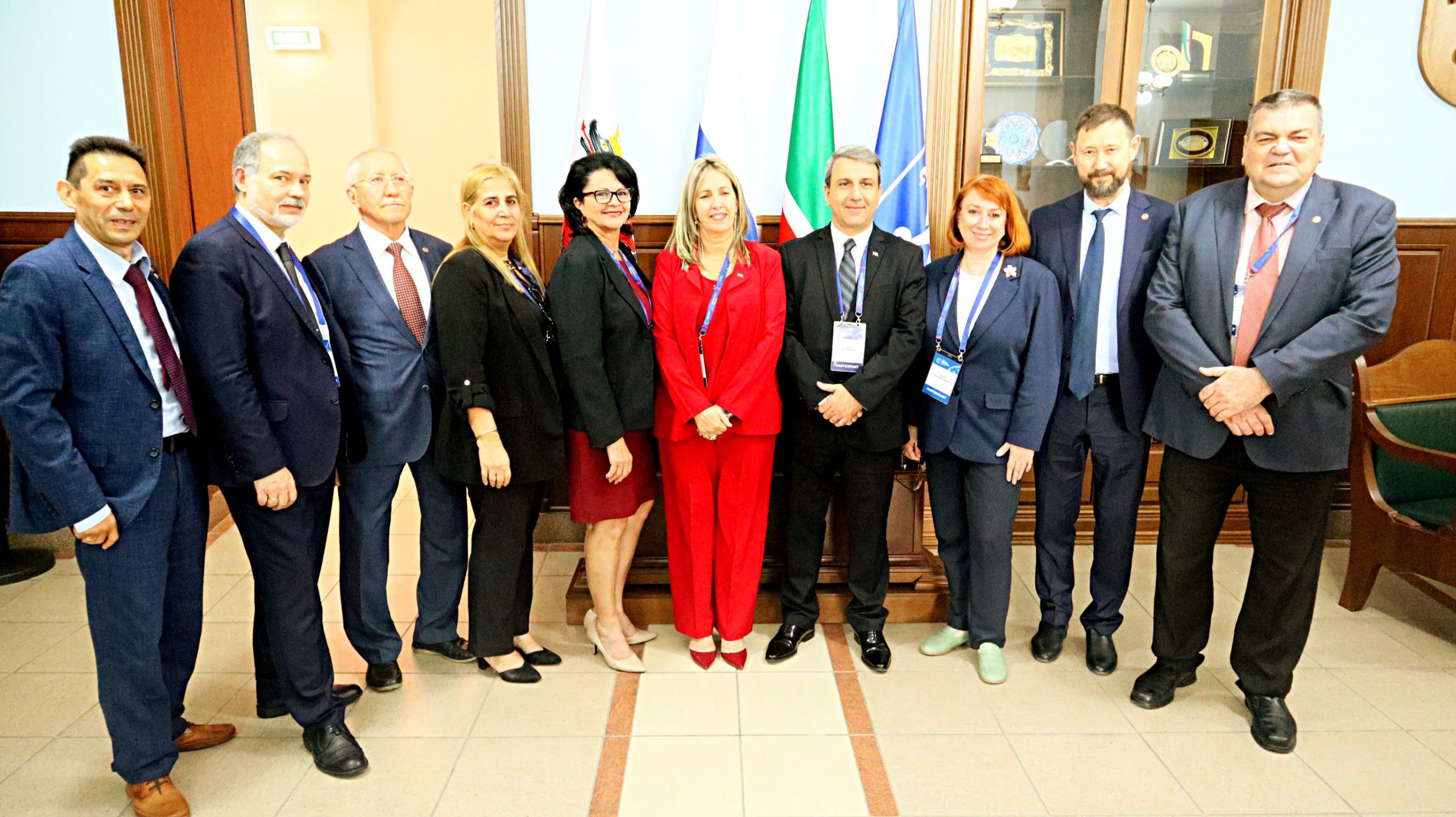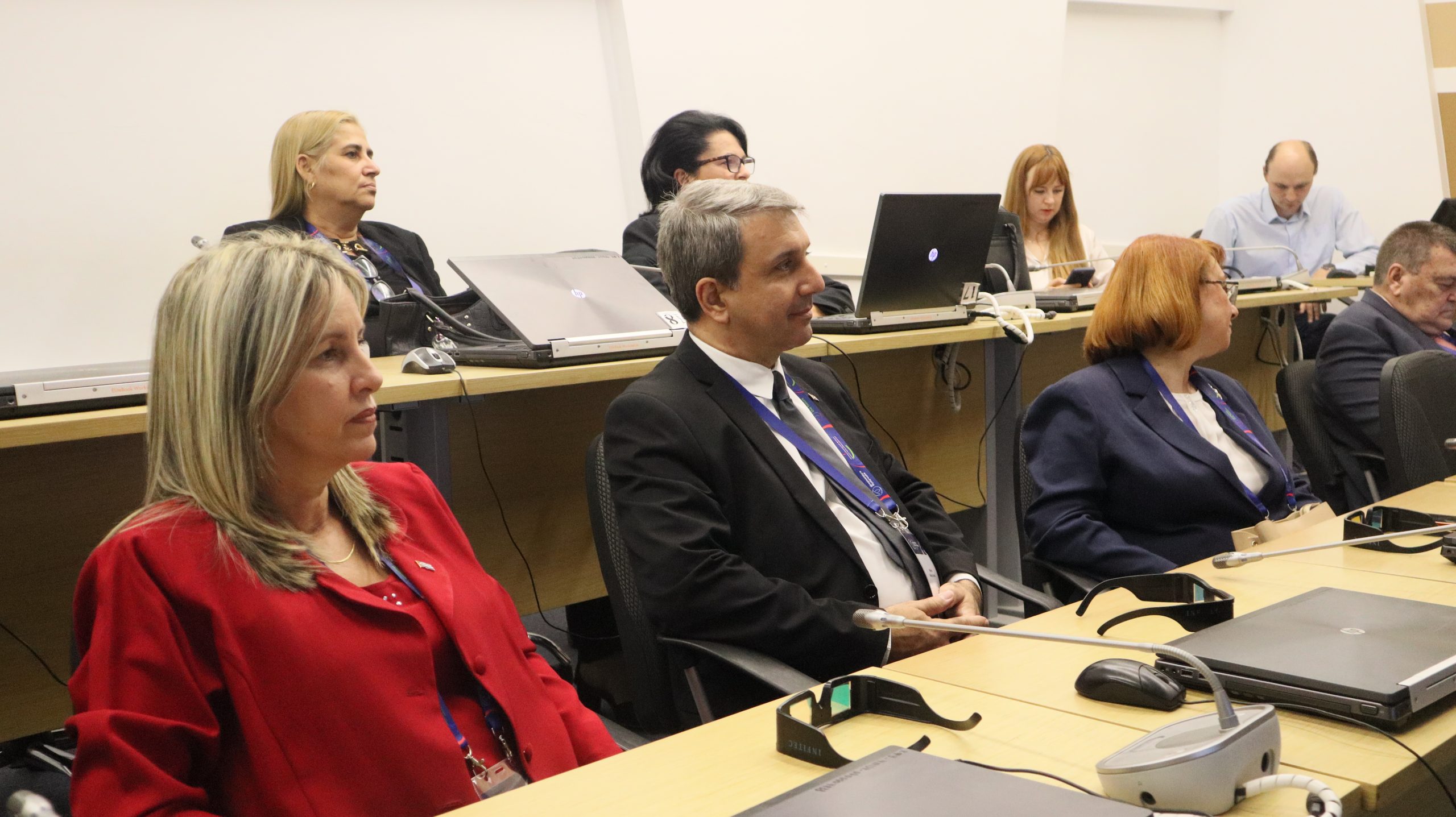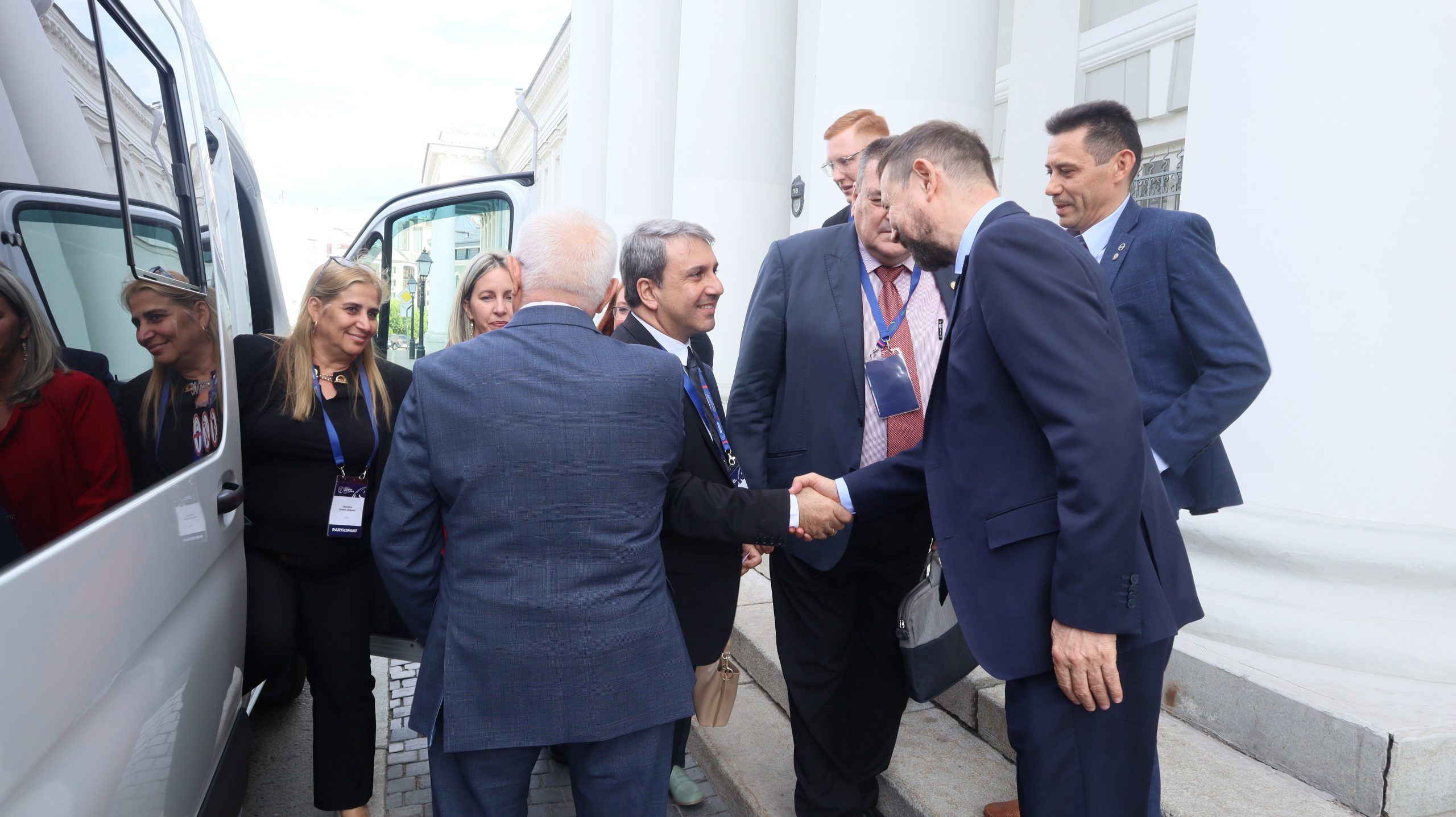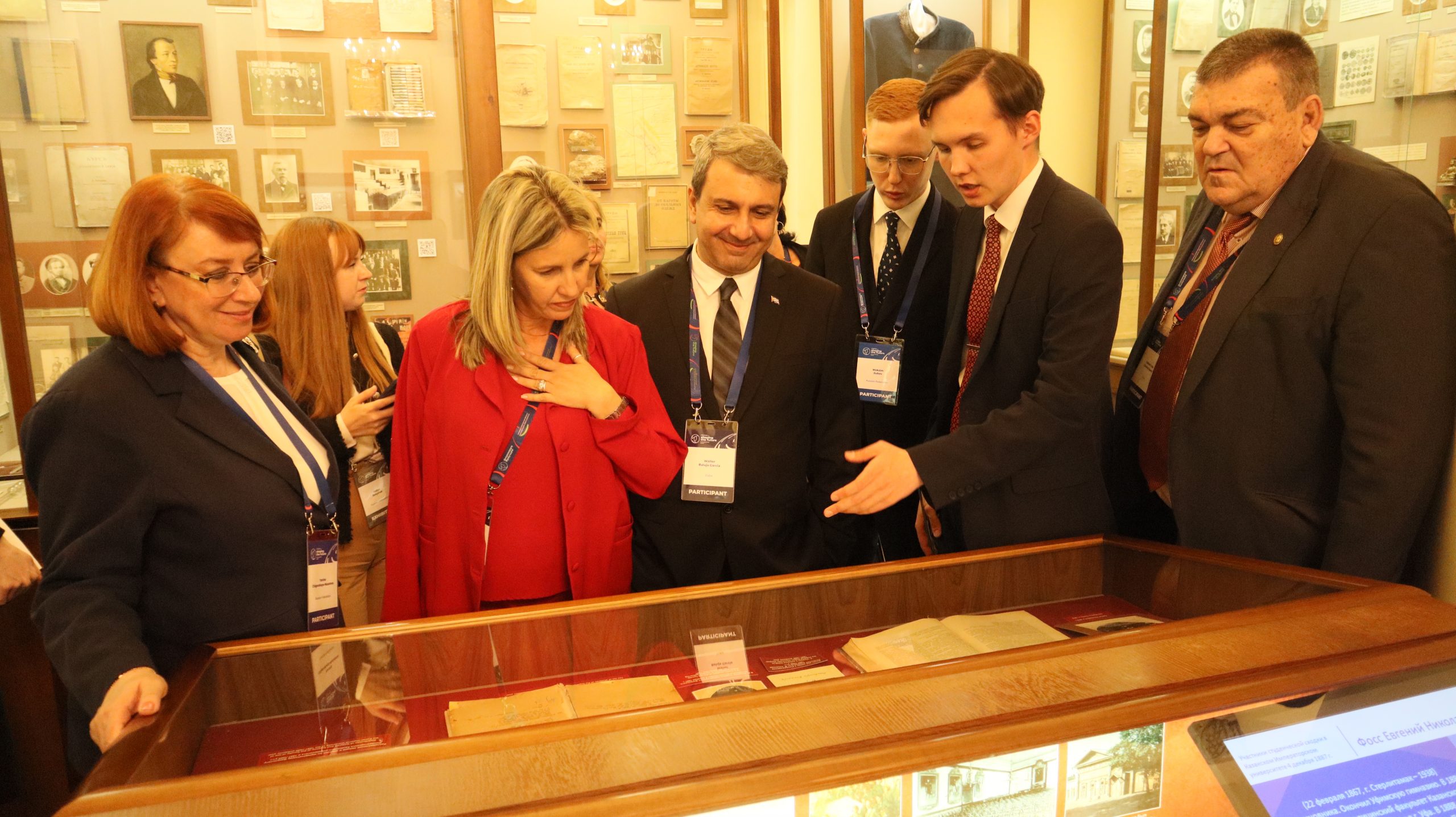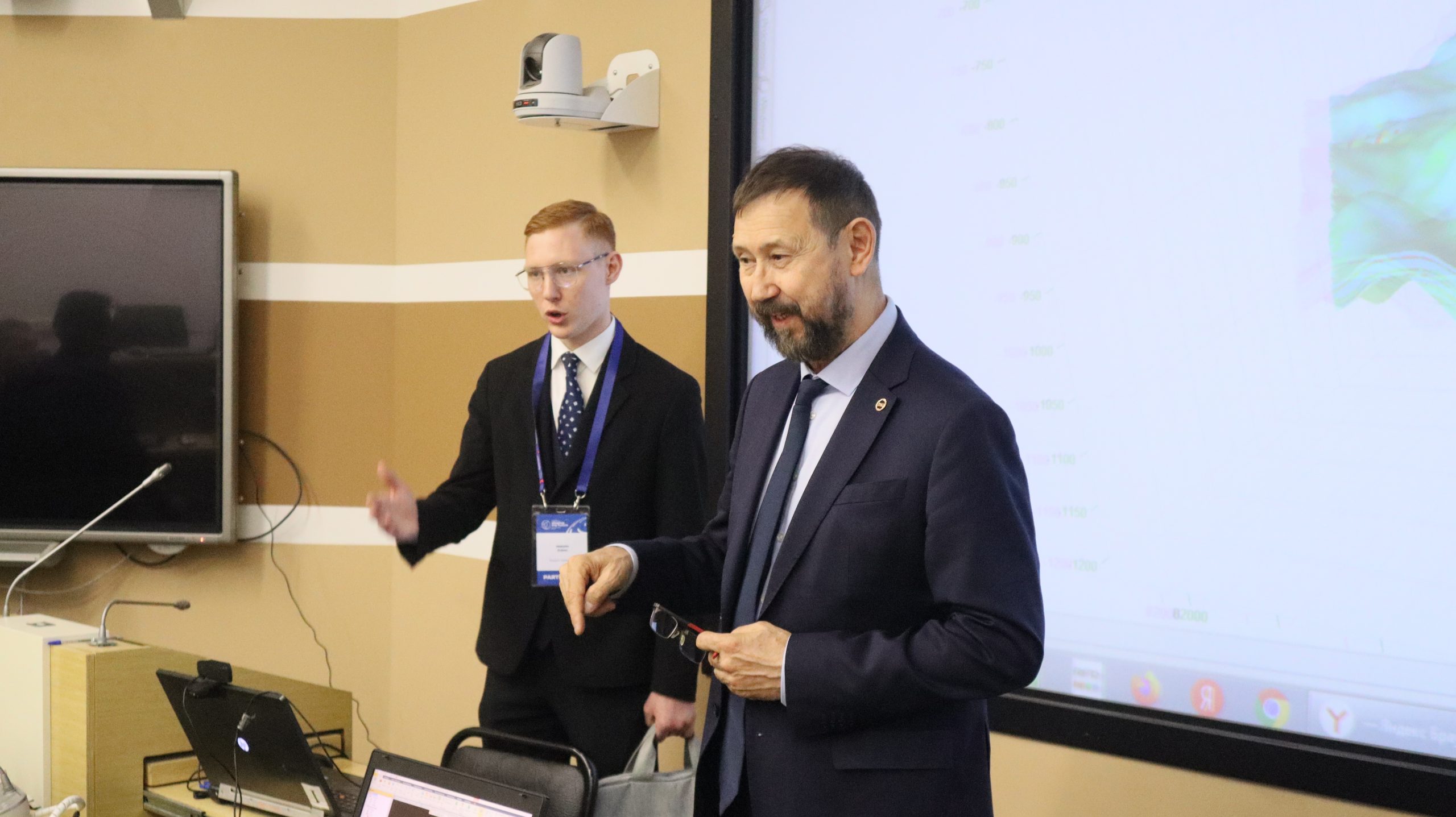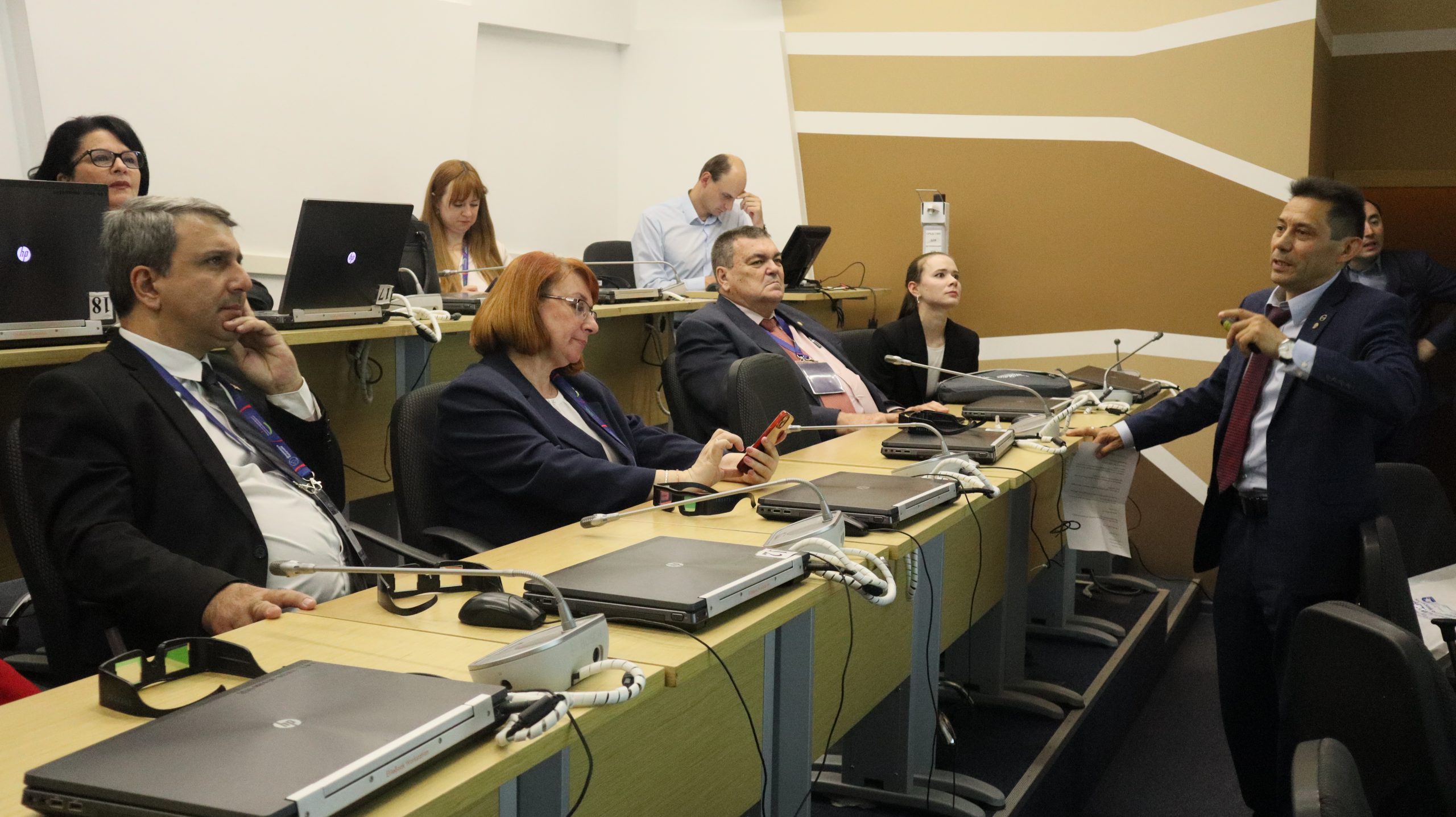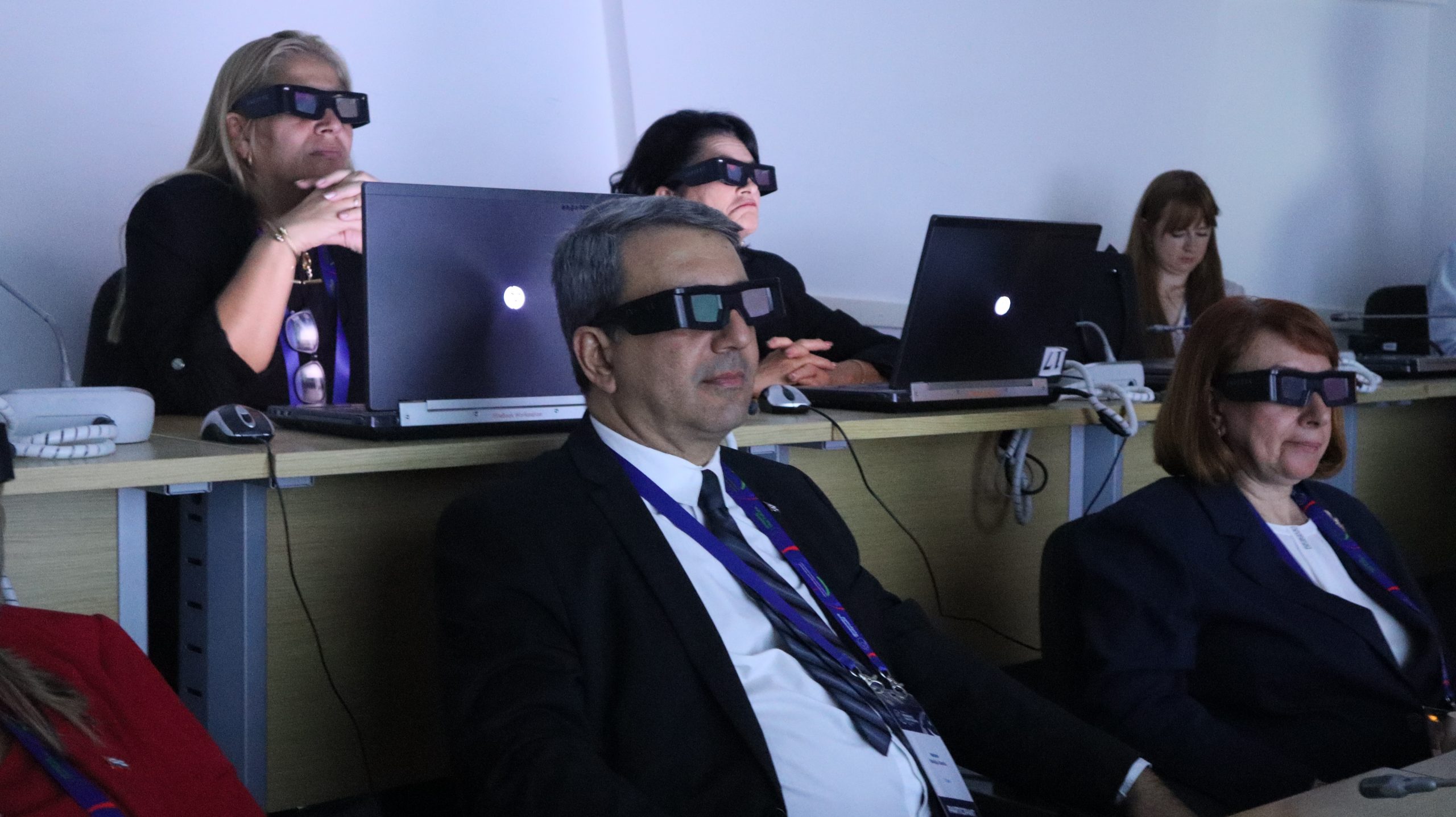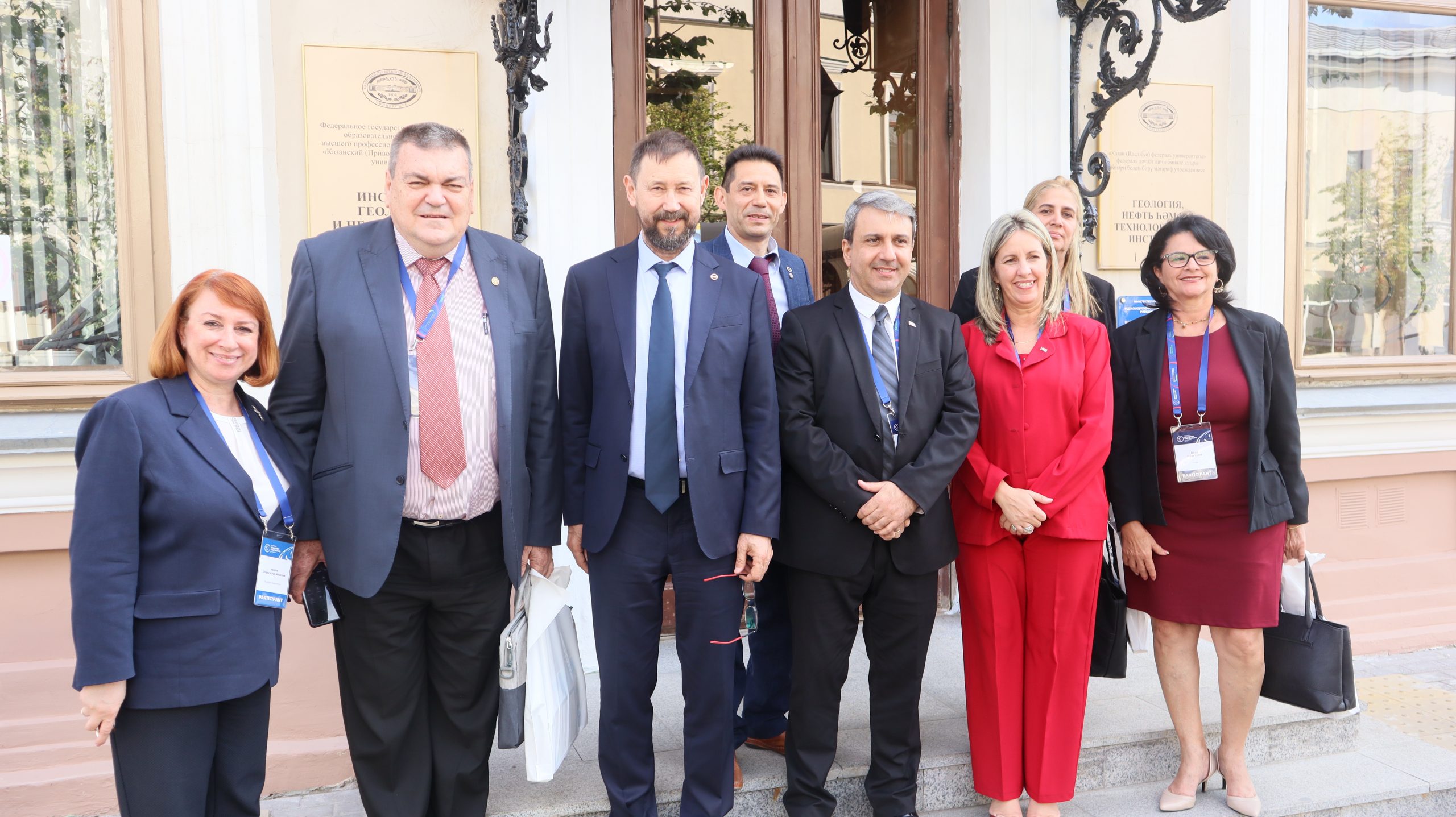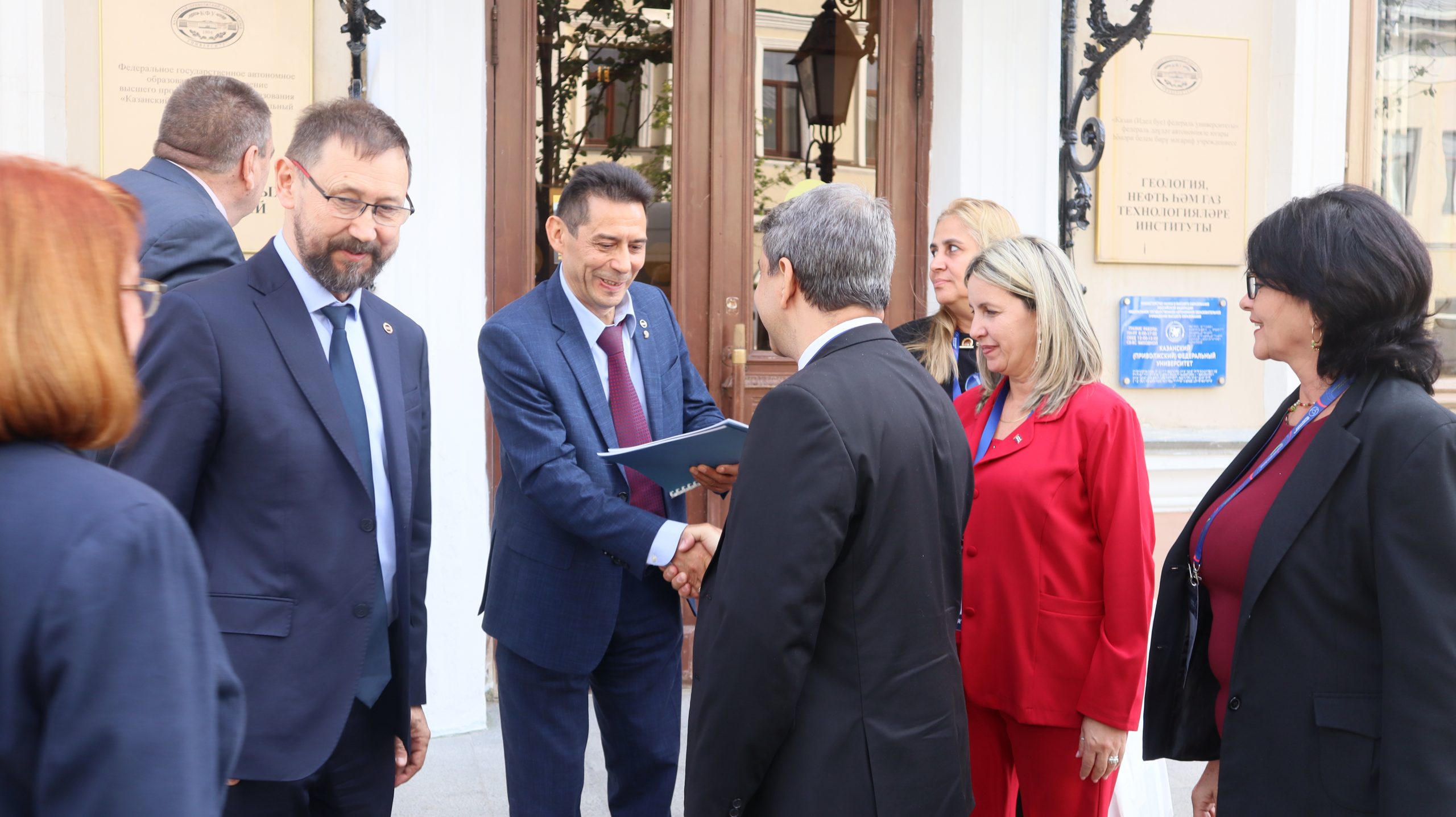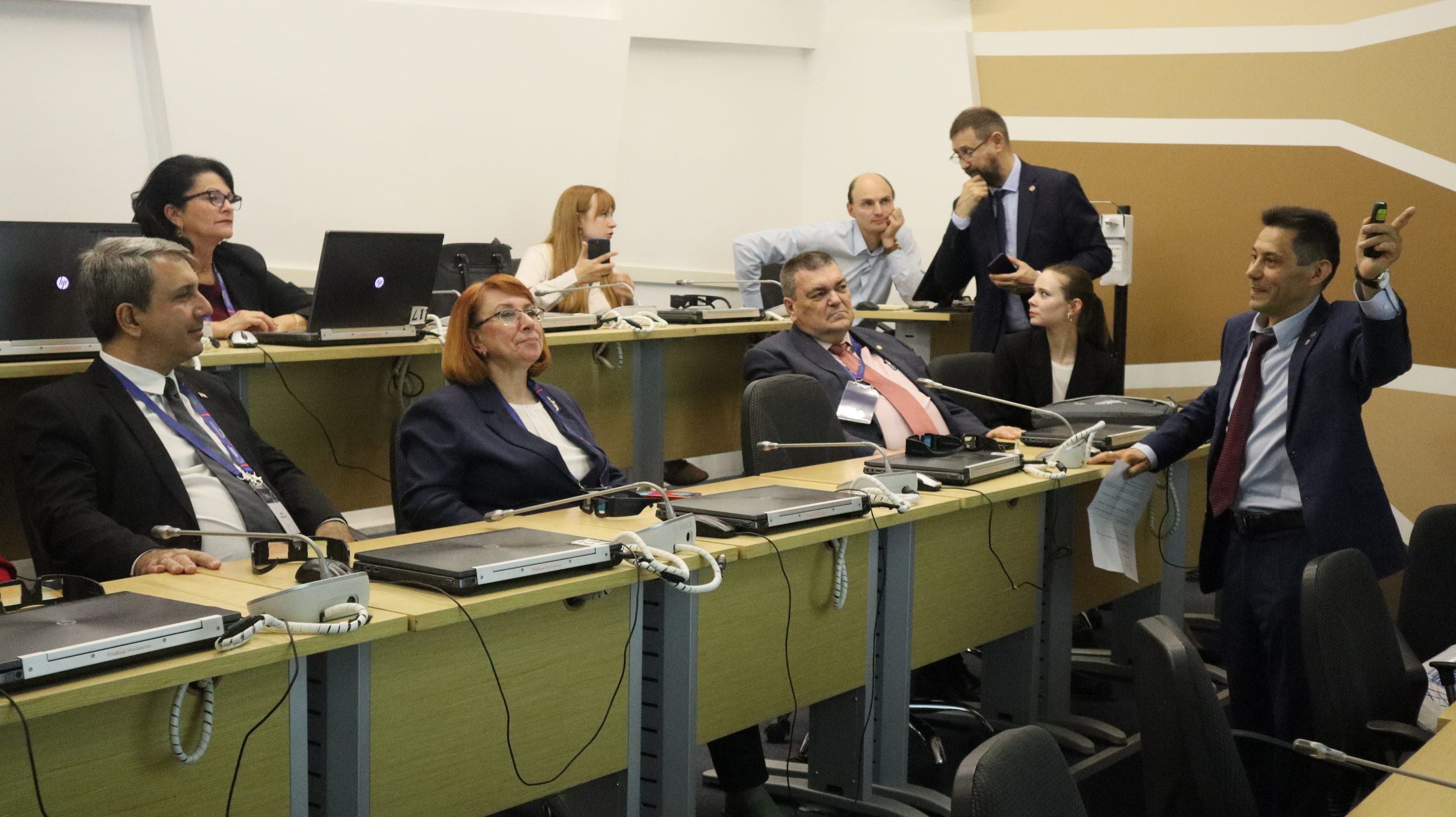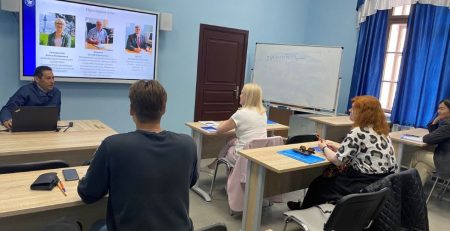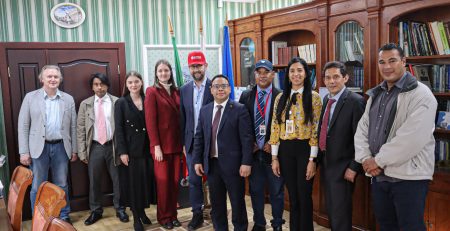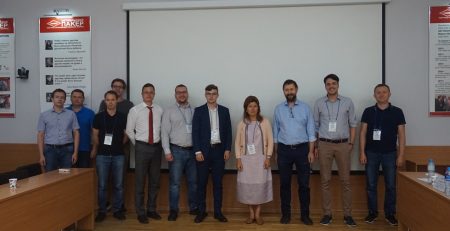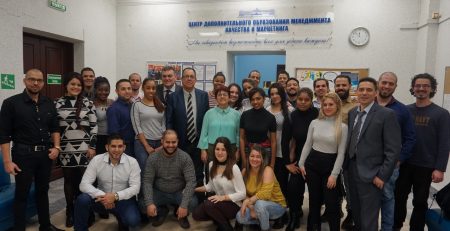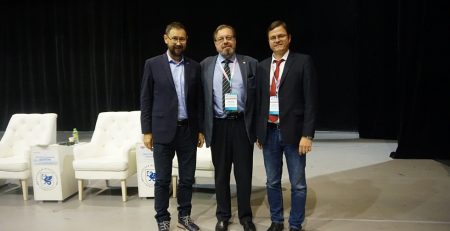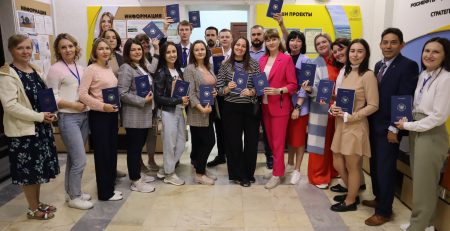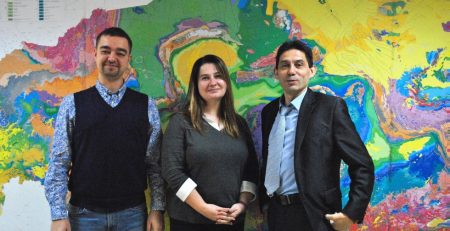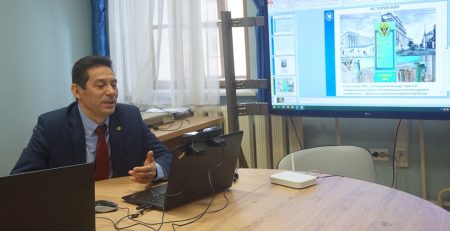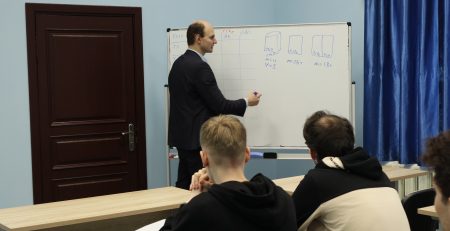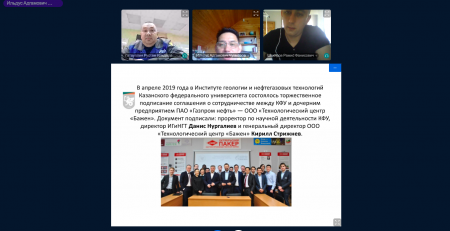IGPT KFU was visited by the Minister of Education of Cuba
On June 8, as part of the Shaping the Future conference, a Cuban delegation headed by the Minister of Education Walter Baluja García paid a working visit to Kazan Federal University. At KFU, the minister was met by University President Riyaz Mizaripov, Vice-Rector for Petroleum Technologies, Environmental Management and Earth Sciences, Director of the Institute of Geology and Petroleum Technologies of Kazan Federal University Danis Nurgaliev and Deputy Director of IGPT for Marketing, Director of the Center for Advanced Training, Quality Management and Marketing Ildus Chukmarov.
The meeting began at the Museum of the History of Kazan University, where the Minister of Education got acquainted with the main stages in the development of the university and the famous personalities who studied and worked here. Cubans were especially interested in the founder of the Communist Party and the Soviet Socialist State in Russia, Vladimir Ilyich Ulyanov (Lenin), and the writer Leo Nikolayevich Tolstoy.
After the tour, the guests visited the Institute of Geology and Petroleum Technologies of Kazan Federal University. In the 3D GEO Center laboratory, where students use world leading software and learn to interpret geological and geophysical data and build geological and reservoir simulation models, Danis Nurgaliev told the guests in detail about the cooperation between IGPT and Cuba.
“Cuba has large oil reserves, including the Boca de Jaruco field, which are under production by the national oil and gas company CUPET,” says Danis Nurgaliev. “We cooperate with this enterprise in the technological and educational fields. Since the main reserves of Cuba are high-viscosity oil, KFU scientists have developed special catalysts to increase oil recovery. Two batches of the reagent have already been delivered to the field, which helped to significantly increase oil production at this field. Right now we are preparing the next batch of even more efficient catalyst. Irek Mukhamatdinov, Senior Researcher at the Research Laboratory for Enhanced Oil Recovery Methods, received this year’s award from the President of the Russian Federation for the successful application of the technology of in-situ oil upgrading by catalytic aquathermolysis. And today, the CUPET leadership has set a new task for KFU scientists – how to achieve the removal of sulfur from oil in order to produce diesel fuel and gasoline in Cuba. Another task is to search for new, even better oil deposits. Therefore, cooperation between IGPT and Cuba continues to develop.”
In 1964, the Russian Society for Friendship with Cuba was founded, with Aleksei Lavrov as president. Ildus Chukmarov, the head of the Society’s Regional Department in the Republic of Tatarstan, told the guests about cooperation with Cuba in the educational field.
“From 2018 to 2022, the Institute of Geology and Petroleum Technologies of KFU graduated two groups of masters in the amount of 25 people under the Petroleum Engineering program. We also train employees through additional professional education. In total, from 2018 to 2022, 267 specialists and managers of CUPET have been trained in Havana and Kazan. In continuation of cooperation, we propose to implement training for CUPET employees in the following formats: advanced training in Cuba with subsequent transfer; professional retraining followed by a transfer lasting 3 months; a two-year program with the issuance of a diploma of professional retraining of the established sample of KFU. We propose to include the professional retraining and advanced training programs of Kazan Federal University in the area of “Petroleum Engineering” and “Geology” in the list of programs funded by quotas of the Cuban – Russian intergovernmental agreement. This proposal will increase production, reduce costs and ensure the energy independence of Cuba, which will ultimately improve the quality and standard of living at the Republic of Cuba,” said Ildus Chukmarov.
The parties expressed their desire to expand cooperation in the scientific and educational areas.

